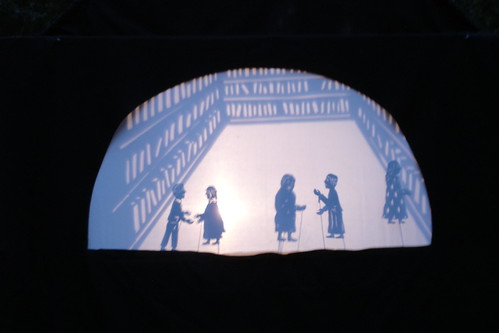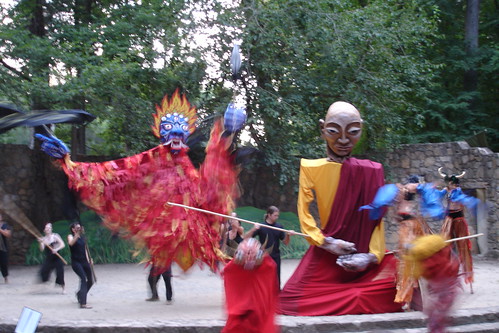Faceted Friending is a term that I have started using to describe what I see as one of the next major stages of how tagging will improve social software. In his recent post titled Sharing and Following/Listening in the Social Web, Thomas Vander Wal discusses how networks are beginning to allow users a deeper level of granularity into how their defined relationships effect their sharing. For example, the Family, Friends, and All distinction in Flickr is built into how information is shared. Thomas’ post highlights some of the top level distinctions that people are making along these lines. While many of the following points will overlap with what Thomas is writing about, I believe that I offer a different perspective on many of the same issues.
One example he uses is “Geo Listening and Sharing”. Basically this includes sharing and listening to people in your geographic vicinity. I had the pleasure of working with Thomas on a mini interactionary at DCampSouth. There we were broadly tackling how to improve status updates and Facebook feeds. One of the ideas we came up with was to allow sharing within a geographic area.
The concept of faceted friending is being employed elsewhere on the web as well. The subscription function in del.icio.us is another popular example. I don’t necessarily want to subscribe to my contacts bookmarks about cats and local politics, but I might want to subscribe to their bookmarks on folksonomy and tagging. In fact, with resource sharing applications like del.icio.us, the utility is highly diluted when employed as a straight network. This is why at BiblioCommons, tagging and subject headings are the bonds that hold the network together. Rarely do I care about all of the topics that a person is reading up on, but I often am interested in one unique facet of our shared interests.
This is also important in more social instances. This became particularly noticeable to me when Facebook opened up to the world. Before, I primarily used Facebook to interact with local friends, friends from college, etc. All of a sudden half of my Facebook friends were librarians. While they are librarians who I consider friends, they don’t necessarily need to know my local happy hour plans and I don’t necessarily need to know about stuff they are doing outside of our shared participation in the library world. This background is how the idea of being able to focus status updates by shared personal facets or geography entered my mind when working on the design challenge with Thomas at DCamp.
One of the tricks to employing Faceted Friending is to make the process simple enough that users take advantage of it. That is why our group decided to minimize the facets that could be attached to a status update to those that would be most useful to that feature. Given that students often use it to share their whereabouts, the geographic importance of status came through as a major facet. The difference between core friends and acquaintances came through as a second, which lead us to the concept of a VIP status update that is only sent out to a core group of friends.
A second way to get people to take advantage of faceted friending is to automate the process as much as possible. So for example, when I add someone as a del.icio.us contact, the system could compare our tags, offer up the most common shared tags, and then offer that I pick tags to follow. Again, BiblioCommons is doing this very well and a lot of my belief in this concept comes from my time with them.
Another example of automating this process is through automatically determining geographical information. In the Facebook status updates example, Facebook could determine a users whereabouts by IP address and share their location oriented status updates with friends in that vicinity. Of course GPS can be used similarly.
A third way to simply the process of faceted friending is through embracing and developing open standards that can allow people to maintain categories of friends across social networks. Beginnings of this can be accomplished through adoption of creative uses for microformats such as XFN. This is a topic Chris Messina brought up at last years BarCampRDU that has been gaining increasing traction lately.
I hope to host a session on Faceted Friending at tomorrow’s BarCampRDU. Unfortunately, I will miss the morning sessions, but will pitch the idea for the afternoon.
I plan on writing a lot more about this topic, but was just trying to get a preliminary sketch of my ideas out there. I will be writing more on faceted tagging as well. Ultimately, I see the intersection of faceted tagging and faceted friending as fueling the next generation of social software.

